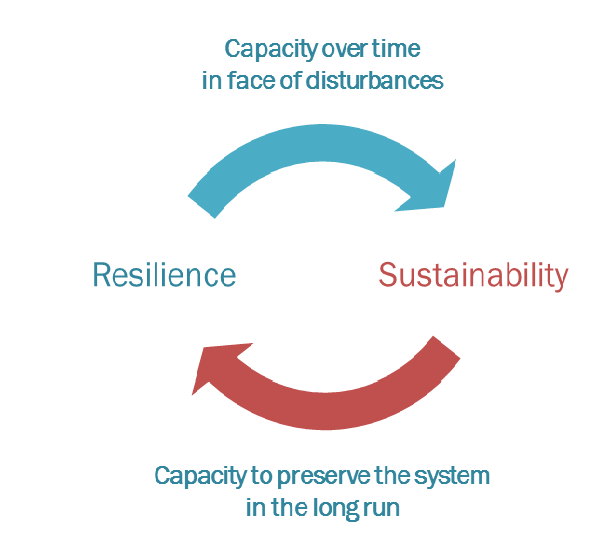Resilience and Sustainability
Complementary Concepts
Resilience and sustainability are complementary concepts (i.e., sustainability is the measure of system performance, whereas resilience is the means to achieve sustainability during or after a disturbance (Tendall et al. 2015)). Resilience and sustainability thinking in agriculture and food systems is a valuable way of conceptualizing current problems, opportunities, strategies, and solutions.

Framework and Ontology
New concepts and definitions for resilience and sustainability emerge so frequently that food system stakeholders and decision-makers can easily become daunted by how to concretely apply these concepts at the local, regional, and especially the global scale.
To address this, we are developing a framework and ontology of resilience and sustainability issues and attributes. The ontology will create explicit yet flexible relationships between these concepts using the ontology-manager external page Protégé ), which utilizes formal OWL ontologies and RDF specifications. Because we can use Protégé for our ontology, eventually these concepts and relationships can be linked to real indicators and data, consistent with Linked Open Data specifications. In addition to Protégé, this information will be hosted on a external page Semantic Media Wiki platform.
Application
Our primary aim is to assist decision-makers (from any stage in the value chain) by using our framework and ontology through a multi-stakeholder process to determine specific ways that resilience and sustainability can be measured for any disturbance, commodity, or location.
The framework and ontology will directly affect how the case studies are planned and carried out, while the results of the case studies will give crucial “reality checks” for the more theoretical ontology work. Since the process is flexible, feedback between the two will strengthen the credibility and legitimacy of the methods.